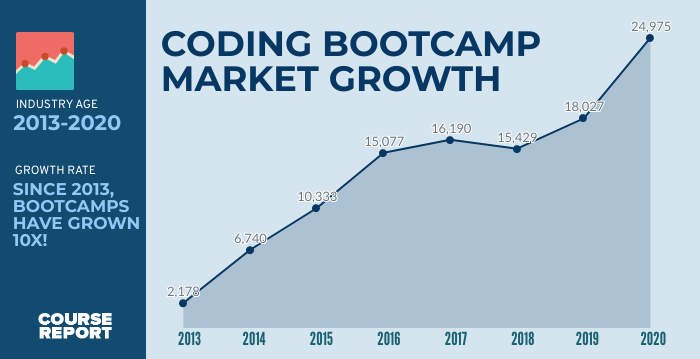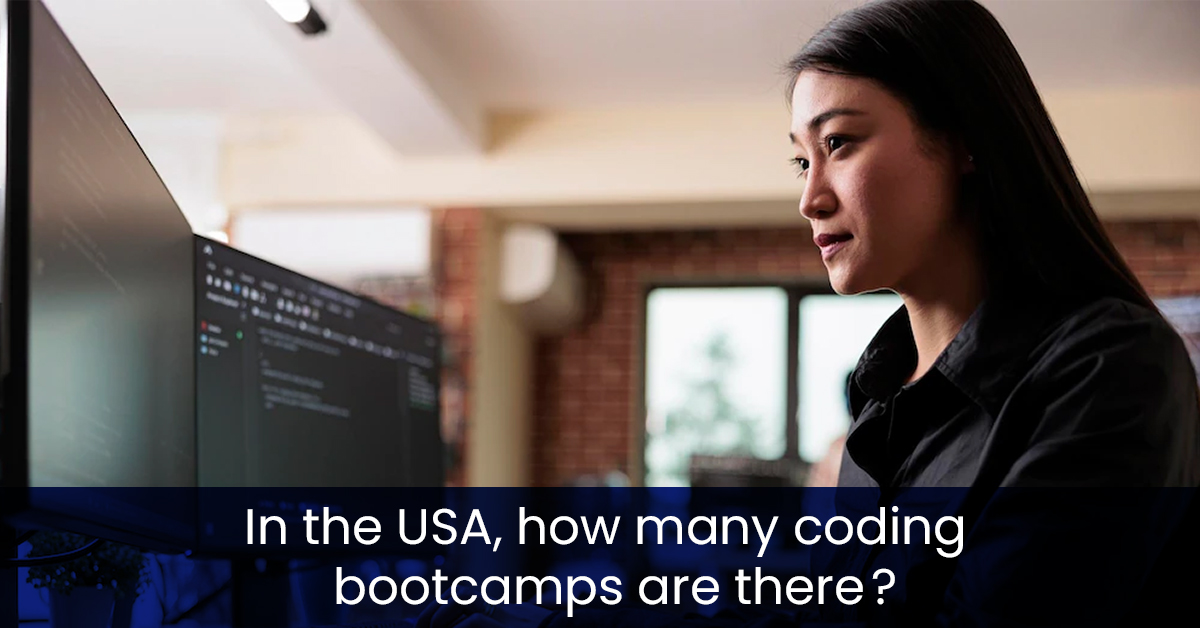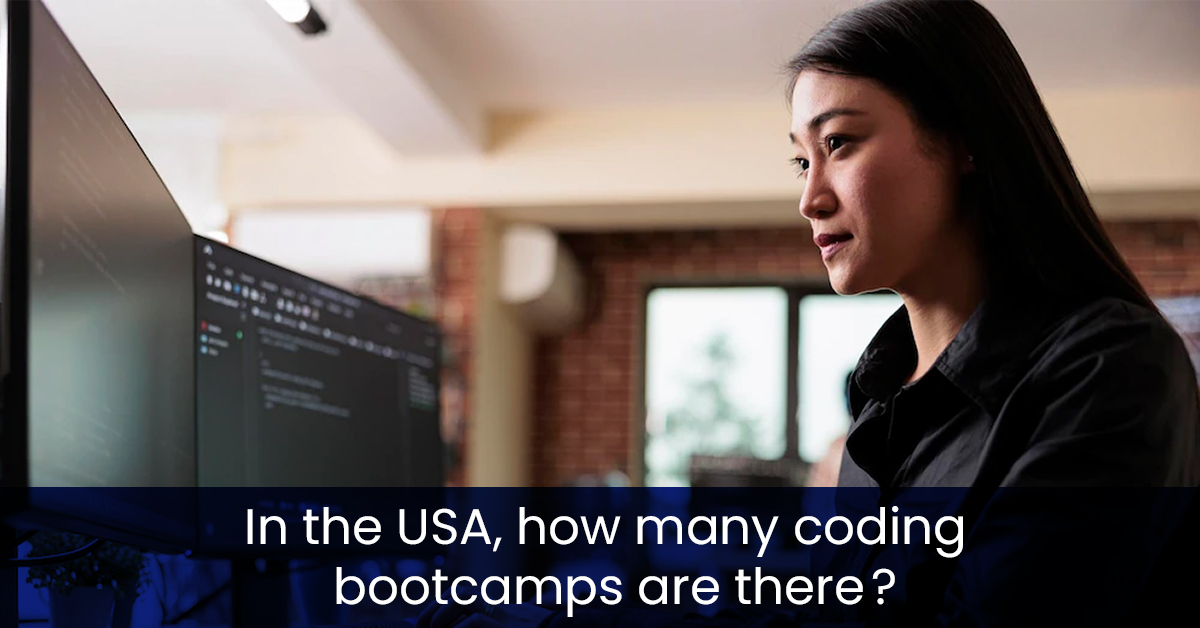Types of Coding Bootcamps: How Many Coding Bootcamps Are There

Coding bootcamps offer intensive training in various programming disciplines, catering to diverse career goals and skill levels. The range of specializations and teaching styles reflects the evolving landscape of the tech industry and the varied learning preferences of students. Understanding these differences is crucial for prospective students to choose the right bootcamp for their needs.
Coding Bootcamp Specializations
The specialization offered by a coding bootcamp significantly impacts the curriculum and career paths it prepares students for. Bootcamps typically focus on specific areas of software development, data science, or cybersecurity.
| Specialization | Focus | Skills Acquired | Career Paths |
|---|---|---|---|
| Front-End Development | User interface (UI) and user experience (UX) design and development. | HTML, CSS, JavaScript, React, Angular, Vue.js | Web Developer, UI/UX Developer, Front-End Engineer |
| Back-End Development | Server-side logic, databases, and APIs. | Node.js, Python, Java, Ruby on Rails, Databases (SQL, NoSQL) | Back-End Developer, Software Engineer, API Developer |
| Full-Stack Development | Both front-end and back-end development. | HTML, CSS, JavaScript, Node.js, Python, Databases, APIs | Full-Stack Developer, Software Engineer |
| Data Science | Data analysis, machine learning, and data visualization. | Python, R, SQL, Machine Learning algorithms, Data Visualization tools | Data Scientist, Data Analyst, Machine Learning Engineer |
| Cybersecurity | Network security, ethical hacking, and security protocols. | Networking fundamentals, security protocols, ethical hacking techniques | Security Analyst, Penetration Tester, Cybersecurity Engineer |
Coding Bootcamp Teaching Methodologies
Different bootcamps employ various teaching methodologies to cater to different learning styles and preferences. The choice of methodology can significantly influence the learning experience and the pace of skill acquisition.
How many coding bootcamps are there – The most common teaching methodologies include:
- Project-Based Learning: Students learn by building real-world projects, applying theoretical knowledge to practical scenarios. This approach emphasizes hands-on experience and problem-solving skills.
- Lecture-Based Learning: Instructors deliver lectures, explaining concepts and providing examples. This approach is often supplemented with hands-on exercises and assignments.
- Self-Paced Learning: Students progress through the curriculum at their own speed, accessing learning materials and support as needed. This approach offers flexibility but requires strong self-discipline.
- Hybrid Learning: A combination of different methods, often incorporating online and in-person components.
Bootcamp Duration Across Specializations
The duration of a coding bootcamp varies depending on the specialization and the intensity of the program. Generally, shorter bootcamps focus on specific skills, while longer programs offer a more comprehensive curriculum.
Average bootcamp durations can be compared as follows:
- Front-End, Back-End, and Full-Stack Development: These specializations typically range from 12 to 24 weeks, with some intensive programs lasting only 10 weeks.
- Data Science: Data science bootcamps tend to be longer, often lasting 16 to 24 weeks or more, due to the complexity of the subject matter.
- Cybersecurity: Cybersecurity bootcamps also tend to be on the longer side, often lasting 16 to 24 weeks or more, to cover the breadth of security concepts and technologies.
Cost and Financing Options

The cost of a coding bootcamp can be a significant factor in a prospective student’s decision-making process. Understanding the financial implications, including tuition fees and available financing options, is crucial for planning and budgeting effectively. This section will explore the average costs associated with bootcamps across different regions and specializations, as well as the various financing methods available to help mitigate the upfront investment.
Bootcamp costs vary significantly based on location, duration, specialization, and the reputation of the institution. Generally, bootcamps in major tech hubs like San Francisco or New York City tend to be more expensive than those in smaller cities or other countries. Similarly, specialized programs focusing on in-demand areas like artificial intelligence or data science often command higher tuition fees.
Average Bootcamp Costs
The following table presents estimated average costs for coding bootcamps across different countries and specializations. It is important to note that these are averages and actual costs can vary considerably. Always check directly with the bootcamp for the most up-to-date pricing information.
| Country | Specialization | Average Cost (USD) | Notes |
|---|---|---|---|
| United States | Full-Stack Web Development | 15000 | Prices vary widely by location and bootcamp reputation. |
| United States | Data Science | 18000 | Higher demand for data scientists often translates to higher tuition. |
| Canada | Web Development | 12000 | Costs are generally lower than in the US, but still significant. |
| United Kingdom | Cybersecurity | 10000 | Prices can vary significantly depending on the specific program and institution. |
| India | Software Engineering | 3000 | Significantly lower costs due to lower overall living expenses and market rates. |
Financing Options
Securing funding for a coding bootcamp can be achieved through various methods. Many individuals find that a combination of options best suits their financial needs. Understanding the pros and cons of each method is vital for making an informed decision.
- Personal Savings: Using personal savings is the most straightforward method, eliminating the need for debt. However, this option might not be feasible for everyone.
- Loans: Several lenders offer student loans specifically for coding bootcamps. These loans typically have repayment periods and interest rates that need careful consideration.
- Scholarships: Many bootcamps and organizations offer scholarships to deserving students based on merit or financial need. Researching available scholarships can significantly reduce the overall cost.
- Income Share Agreements (ISAs): ISAs are an alternative financing option where students pay a percentage of their income after graduation for a set period. The repayment amount is directly tied to their post-bootcamp earnings.
Return on Investment (ROI), How many coding bootcamps are there
The ROI of a coding bootcamp is a complex calculation that depends on several factors. While tuition fees represent a significant upfront investment, the potential for increased earning power post-graduation can justify the expense. A successful bootcamp graduate might see a substantial salary increase compared to their pre-bootcamp income. However, this depends on factors such as job placement rates, the specific job secured, and individual performance. For instance, a graduate landing a high-paying software engineering role might recoup their investment quickly, while someone struggling to find employment after graduation might face a longer payback period. Therefore, a thorough evaluation of job market trends and the bootcamp’s job placement success rate is crucial before enrollment. The equation for a simplified ROI calculation could be represented as:
ROI = (Increased Annual Salary – Tuition Costs) / Tuition Costs
However, this doesn’t account for the opportunity cost of lost wages during the bootcamp period.


Tim Redaksi